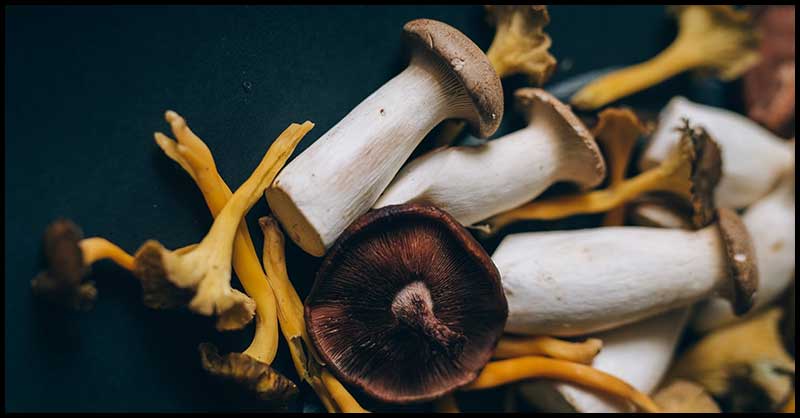Mushrooms have long been recognized as an important part of one’s diet. They are packed with health-boosting vitamins and minerals and fiber. They are also cholesterol-free, low in calories, and fat-free. Though there are many types of mushrooms, they are generally a good source of various nutrients including the following:
Copper
Mushrooms are a great source of copper. Raw shiitake mushrooms, which are native to East Asian cooking, come with 20% of our copper requirement per cup. Copper is needed by our body as it helps in making red blood cells, which are used to deliver oxygen all over the body. Moreover, copper is also needed in maintaining healthy bones and nerves.
The copper content of this mushroom increases to 1,152 micrograms, 128% of our daily needs when they are cooked. Likewise, oysters, portobello, or button mushrooms also contain similar levels (1).
Potassium
Potassium is an essential mineral. It aids in the maintenance of normal fluid and mineral balance, which helps control blood pressure. It also plays a role in making sure nerves and muscles, including the heart, function properly.
There’s about as much potassium in 2/3 cup of cooked Portobello mushroom as there is in a medium-sized banana (2).
B Vitamins
Mushrooms are rich in B vitamins: riboflavin, niacin, and pantothenic acid. They help protect heart health. Riboflavin is good for red blood cells while niacin is needed for good digestion and maintaining healthy skin. On the other hand, pantothenic acid helps the body make the hormones it needs and is good for the nervous system (3).
Beta-Glucans
Beta-glucans promote healthy cholesterol levels and boost immune system function by activating immune cell response and stimulating the production of white blood cells. Mushrooms – particularly shiitake, maitake, reishi, shimeji, and oyster varieties – are good sources of beta-glucans. Experts have also found that beta-glucans in maitake and shiitake mushrooms demonstrate particularly high levels of anti-carcinogenic activity (4).
Antioxidants
According to researchers, mushrooms contain unusually high amounts of two antioxidants namely ergothioneine and glutathione. These antioxidants could help fight aging and bolster health. They help fight free radicals that that can cause damage to cells, proteins, and even DNA (5).
How to Eat More Mushrooms
- Slice some mushroom into pasta sauce.
- Slice mushrooms to add great flavor and texture to nearly any side dish.
- Cut up a small mushroom and mix it into omelets, quiches, or scrambled eggs at breakfast or brunch.
- Chop mushrooms and then blend them into the meat you’re cooking for lunch or dinner.
Sources:
- https://www.webmd.com/diet/foods-high-in-copper#:~:text=As%20a%20high%2Dprotein%20vegetable,128%25%20of%20your%20daily%20needs.
- https://www.mushroomcouncil.com/nutrition-benefits/
- https://www.healthline.com/health/food-nutrition/are-mushrooms-good-for-you#How-to-eat-mushrooms
- https://healthyeating.sfgate.com/sources-betaglucan-9117.html
- https://www.sciencedaily.com/releases/2017/11/171109100409.htm









